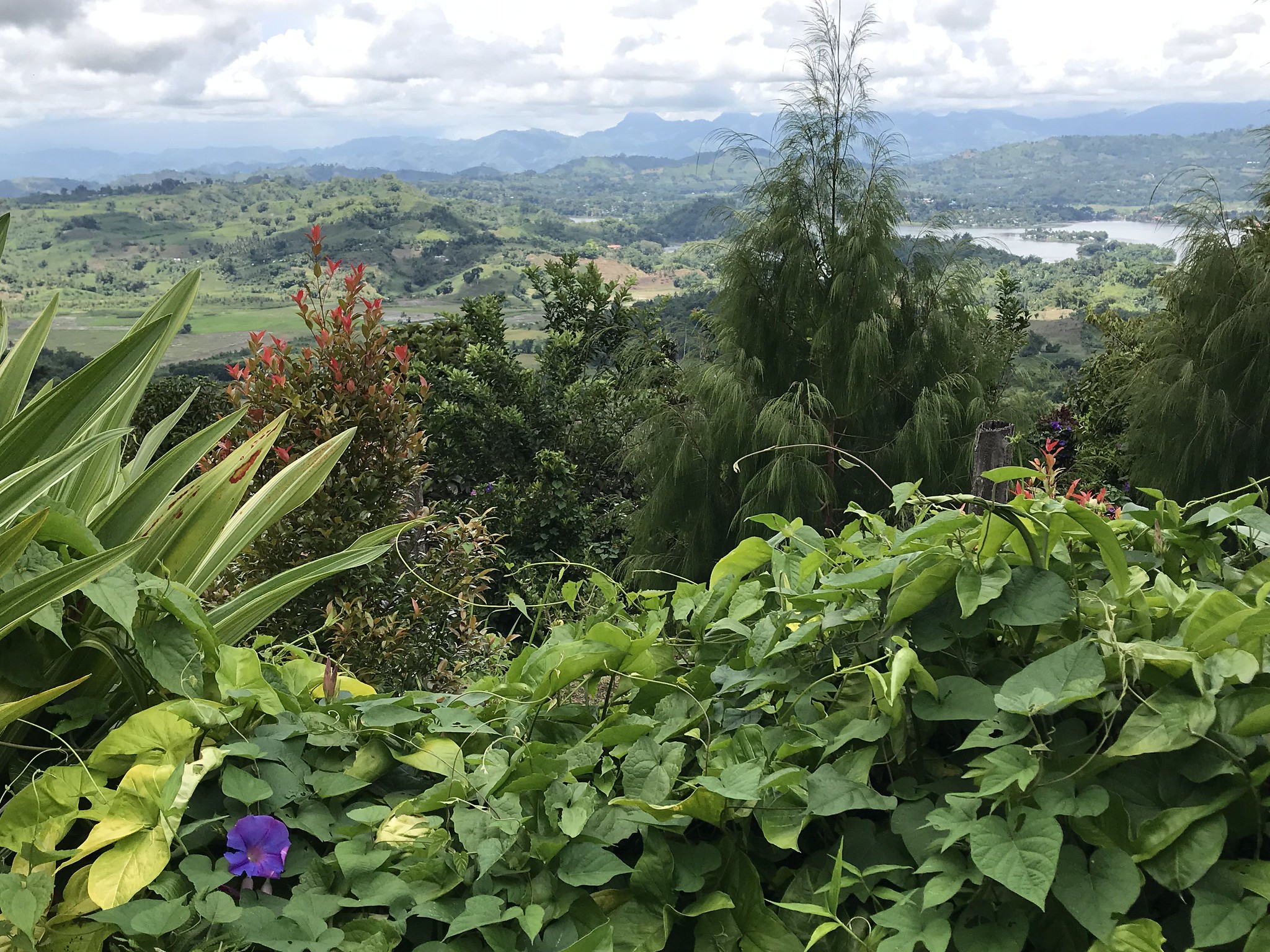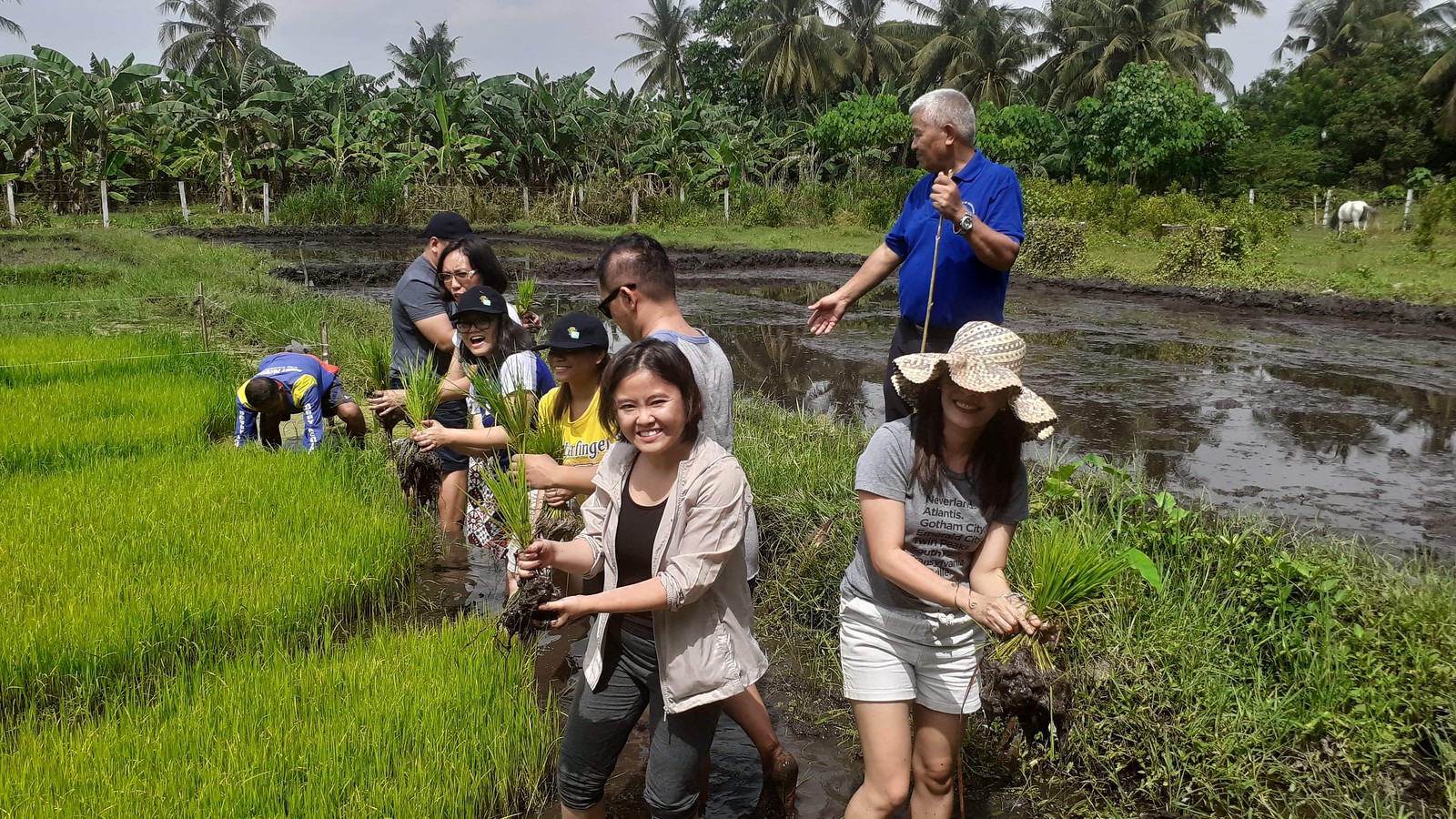I returned to the Land of Dreamweavers this week in Mindanao. Recently, Lake Sebu and the indigenous people of South Cotabato the Tboli was put in the spotlight again after Ms. Universe Catriona Gray's promotional video but still, people are apprehensive to go there. I remember being a novice blogger in 2011, I bravely went to Davao first then went back to GenSan for The Soccsksargen Experience Tour. We went to Gensan, South Cotabato and I even hopped on a bike to Sarangani. That time, it was always fish, as the highlights were the the tuna festival, the salmon tour and the fish port tour. This time around, I came back for the 10th season of the Organic Agriculture experience hosted by the Agricultural Training Institute (ATI) of the Philippine Department of Agriculture! These experiences slowly endear me to this often feared southern part of the Philippines. We specifically went to SOX or SOCCSKSARGEN, which is part of Region 12 and comprises of South Cotabato, (North) Cotabato, Sultan Kudarat, Sarangani and General Santos or Gensan. The region is rich in tradition, cultural assets, natural resources and farmers who are very passionate about organic farming like Mr. William Enriquez Sy and Ms. Mayette Sy of Sebul Farm in Lake Sebu! By visiting ATI-accredited organic farms, you get to see different farming methods and even get lots of tips and best practices from the owners ;)
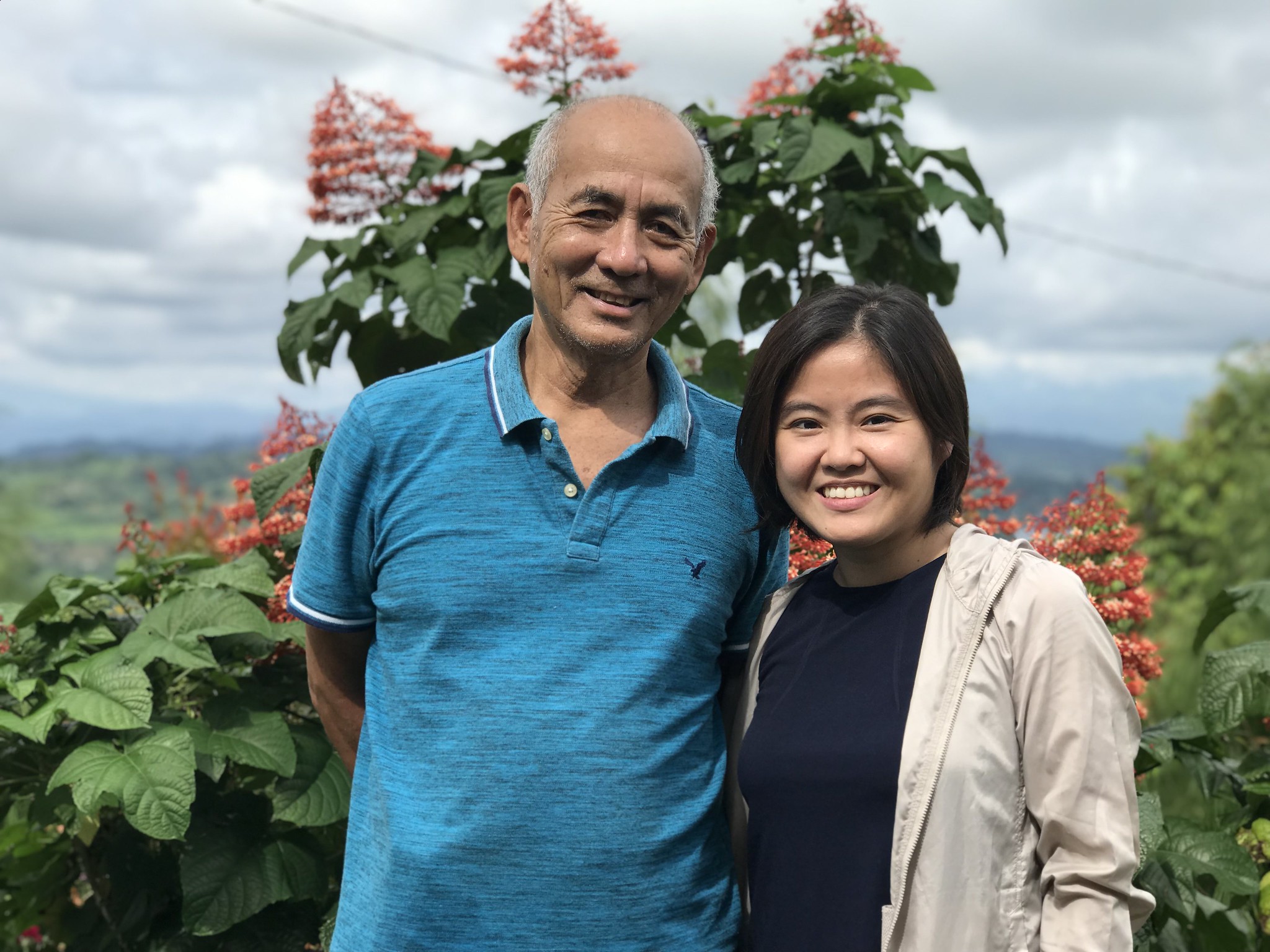
Some of you may not know yet but the ATI is a very important branch of the Department of Agriculture. They reach out to farmers and equip them with technical know-how (farming, skills, marketing and even communication) so that these farmers may help out other struggling farmers in their community. ATI also helps in identifying and accrediting outstanding farms to Learning Sites, Extension Service Providers, Schools for Practical Agriculture and Farm Tourism Sites so that other people can go there and learn first hand. Like me, you can also tour around the Philippines and visit organic farms (read all the way to know how, check out my label Organic Journey to see where I've been since 2012)! Wouldn't you want to have this view?
We arrived at around 9 a.m. at the GenSan airport, had some baggage delay, stopped for breakfast and travelled around 2 hours by van to Lake Sebu in South Cotabato. The weather there is a little cooler and the altitude a little higher to get to Sebul Farm. Mr. Sy was already waiting for us and welcomed us in the learning hall.
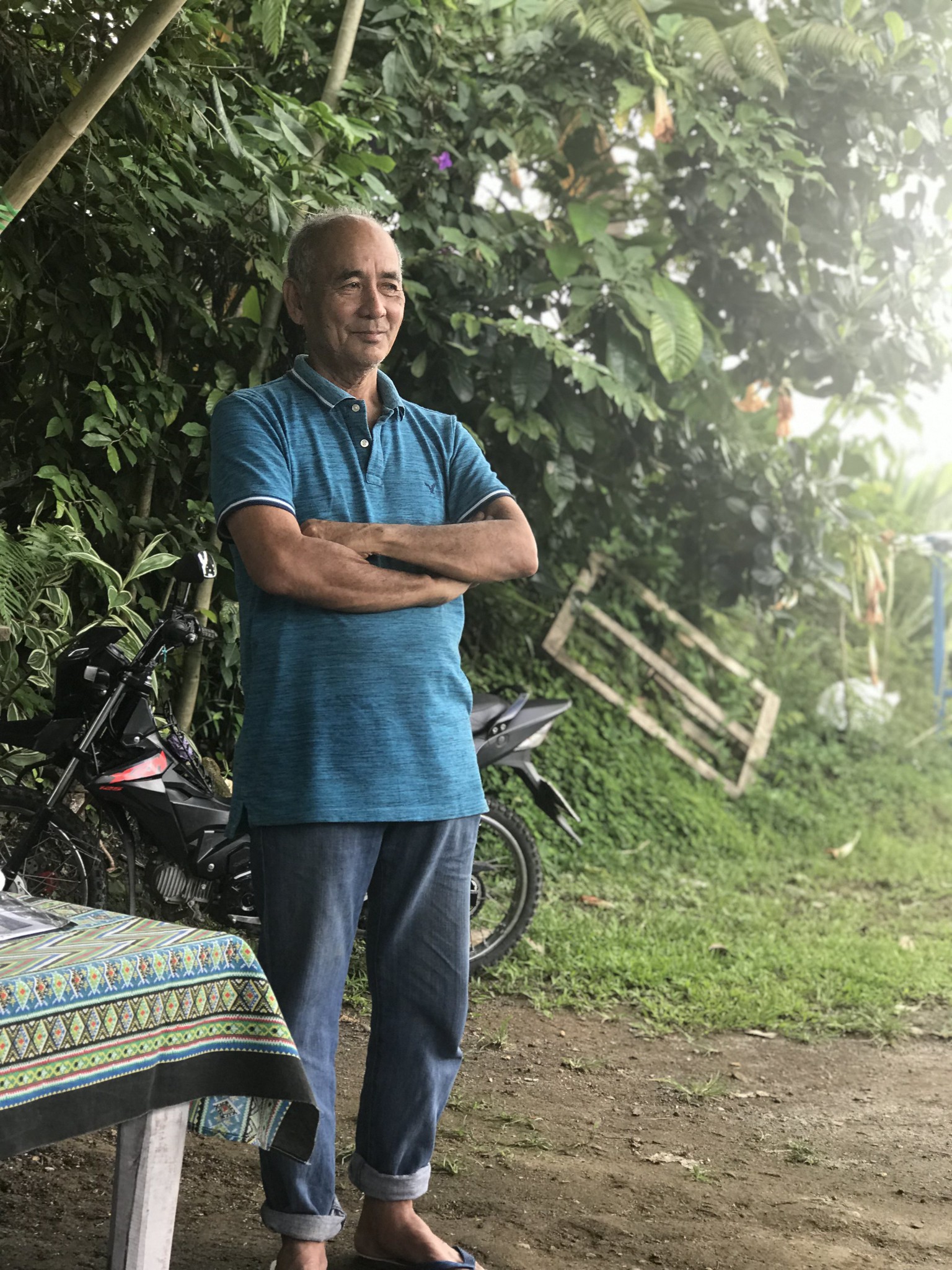

Ah, it was nice to be back to the countryside. There's always fresh air and healthy home-cooked food waiting for you haha. We had the tulay fish, shrimp and nilaga with a twist for lunch prepared by the first lady of the farm.
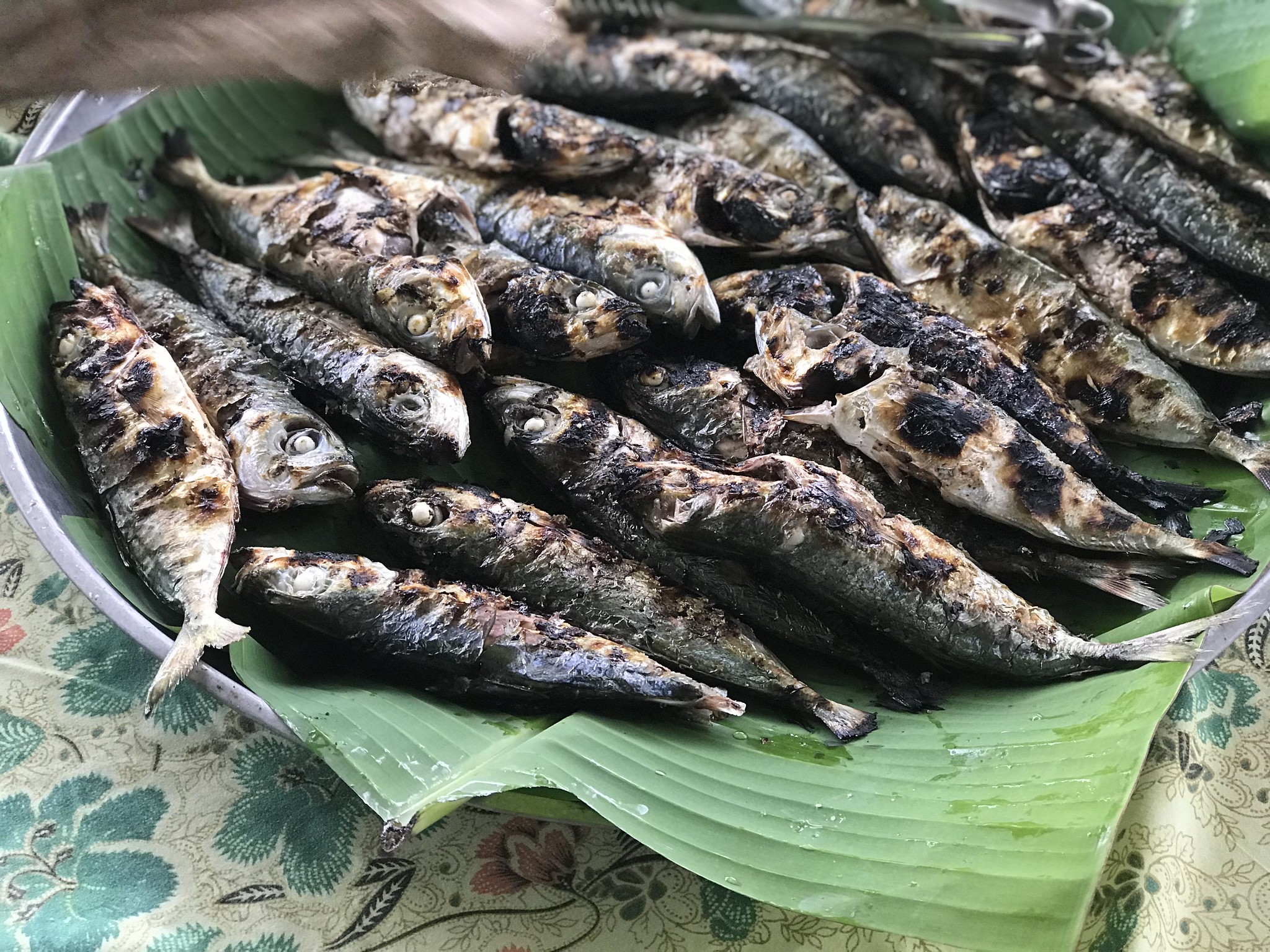
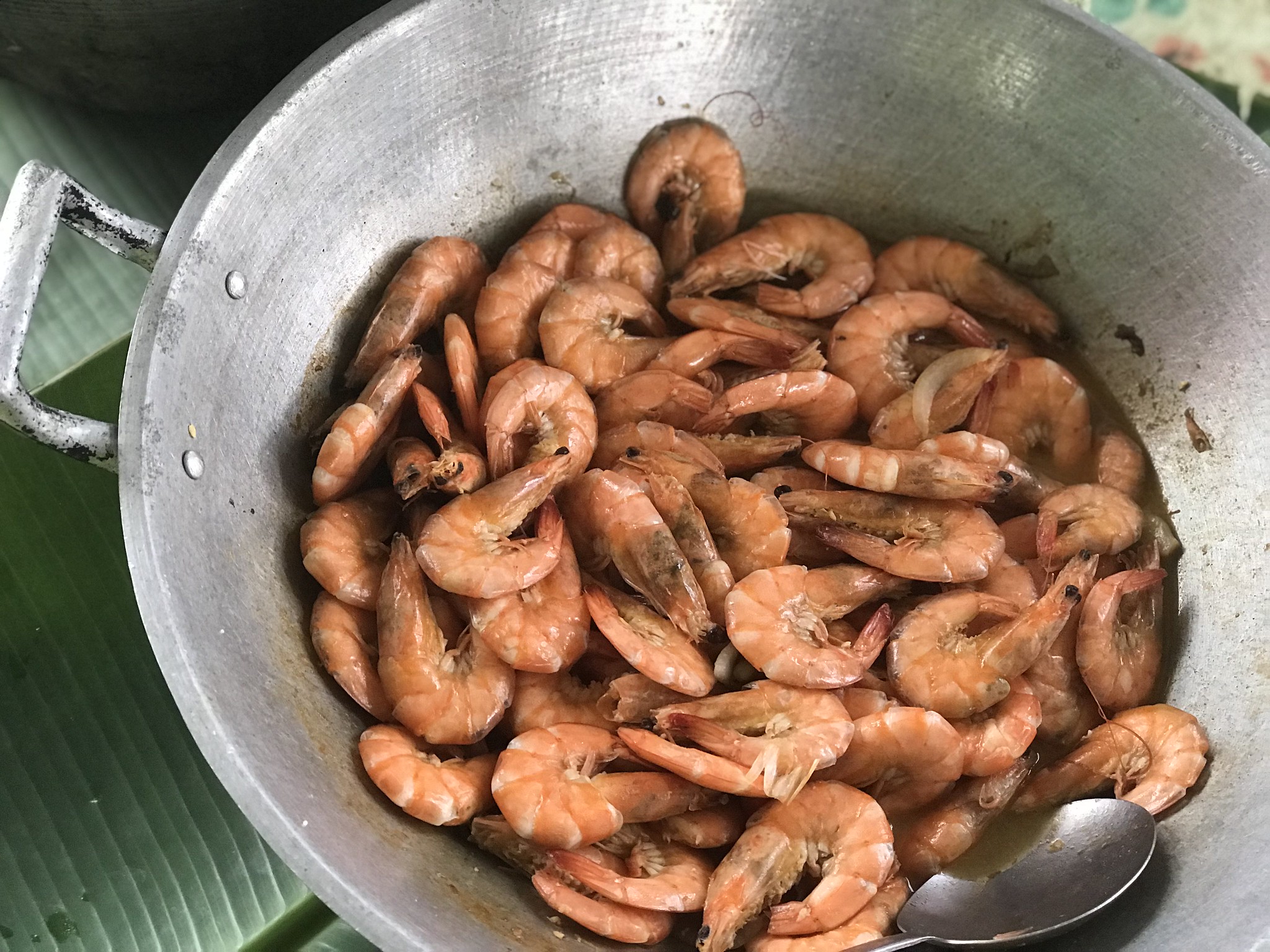
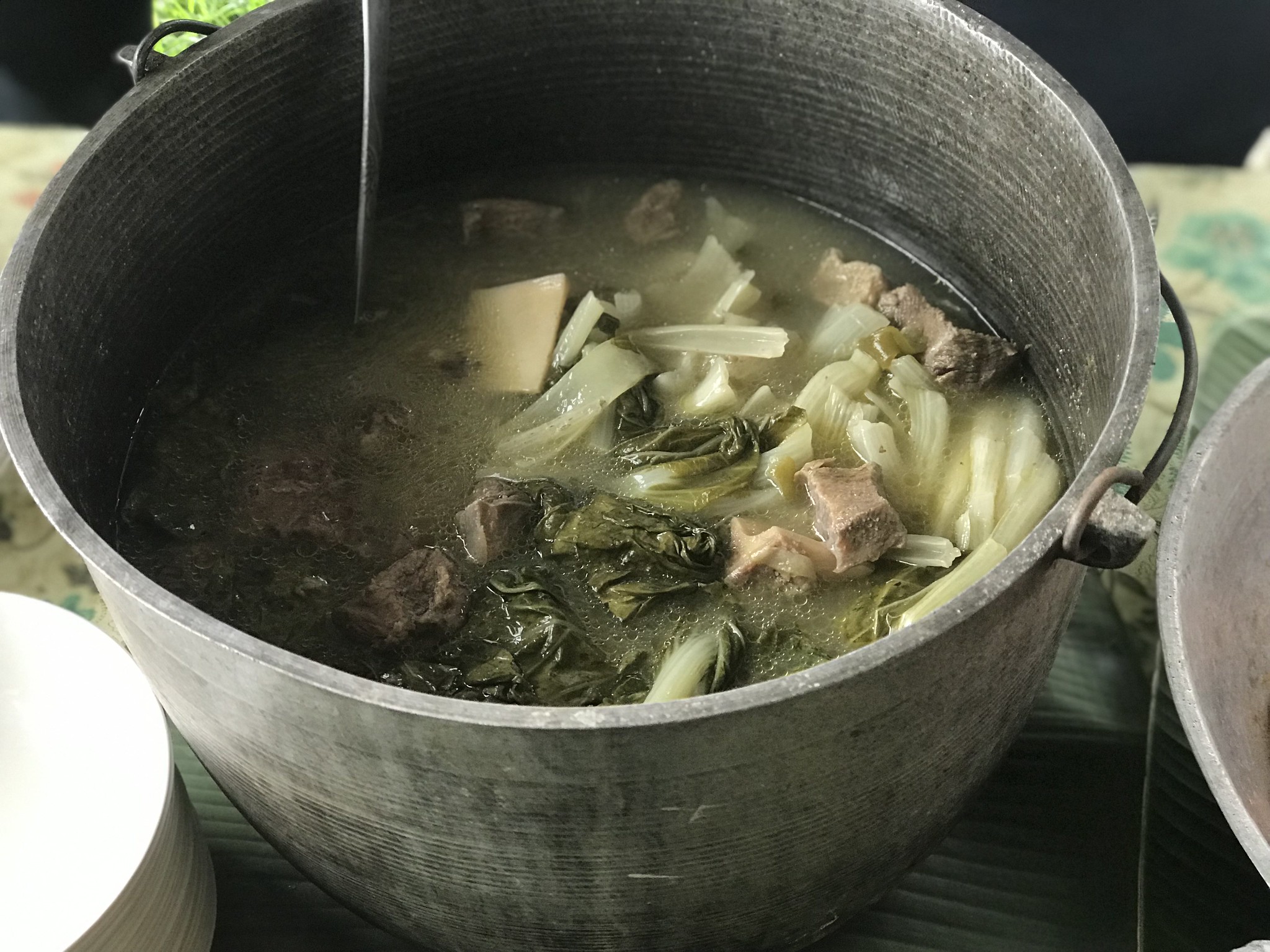
Each farm usually has a signature drink. This one is tanglad (lemongrass), ginger and pandan from the farm ;)

They have cottages here for rent at P3000 per cottage. It can accommodate maybe around 10 people. We stayed in one 2-storey structure with basic beds, toilet (no flush, buhos type) with shower (tabo type) and amenities like soap and towel. Please note that there might not be hot water available in the farms like this ;) There's a kitchen and another CR downstairs. There are electrical outlets available and some 3G signal.

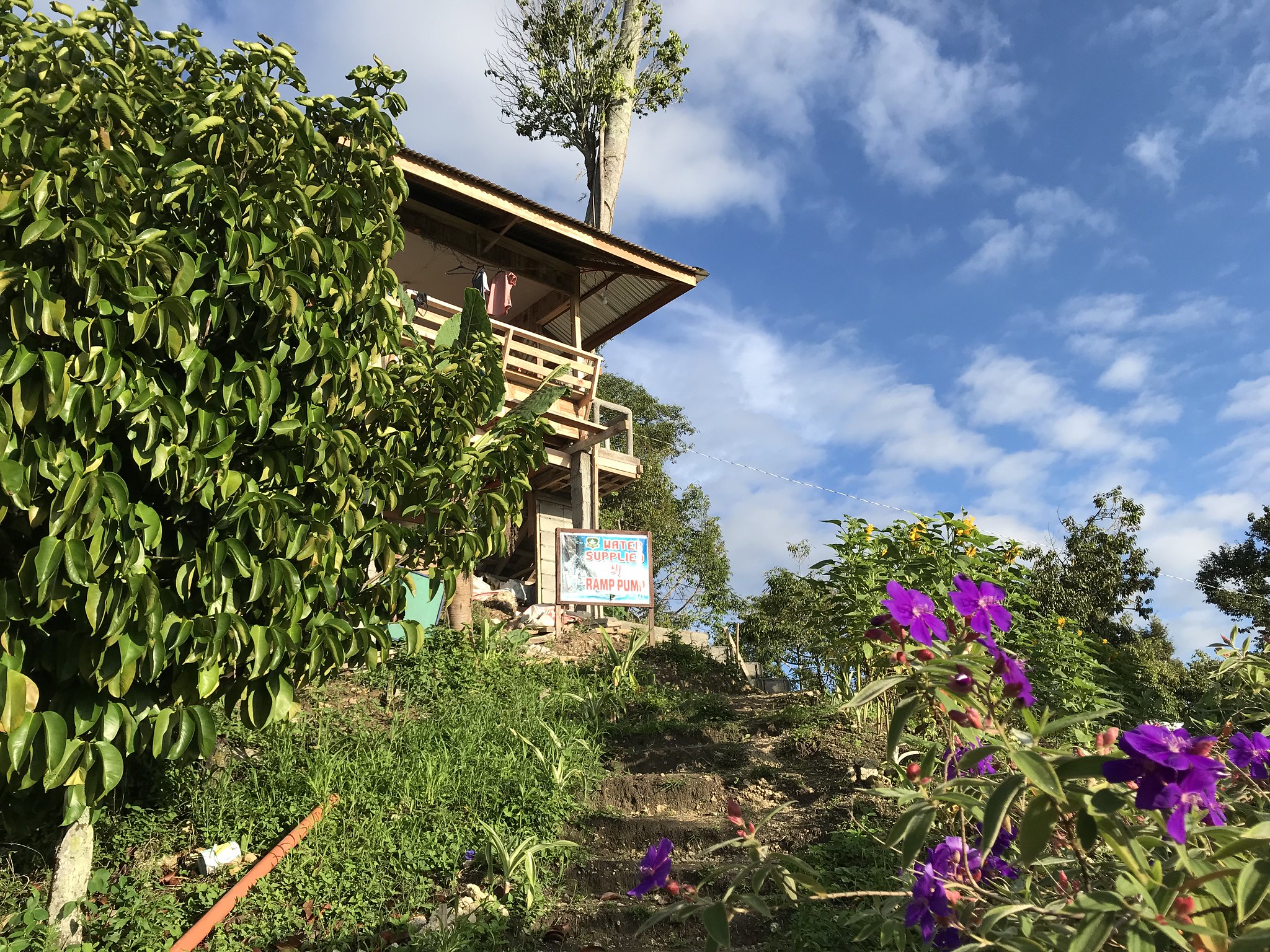


We also had a balcony with this view =)
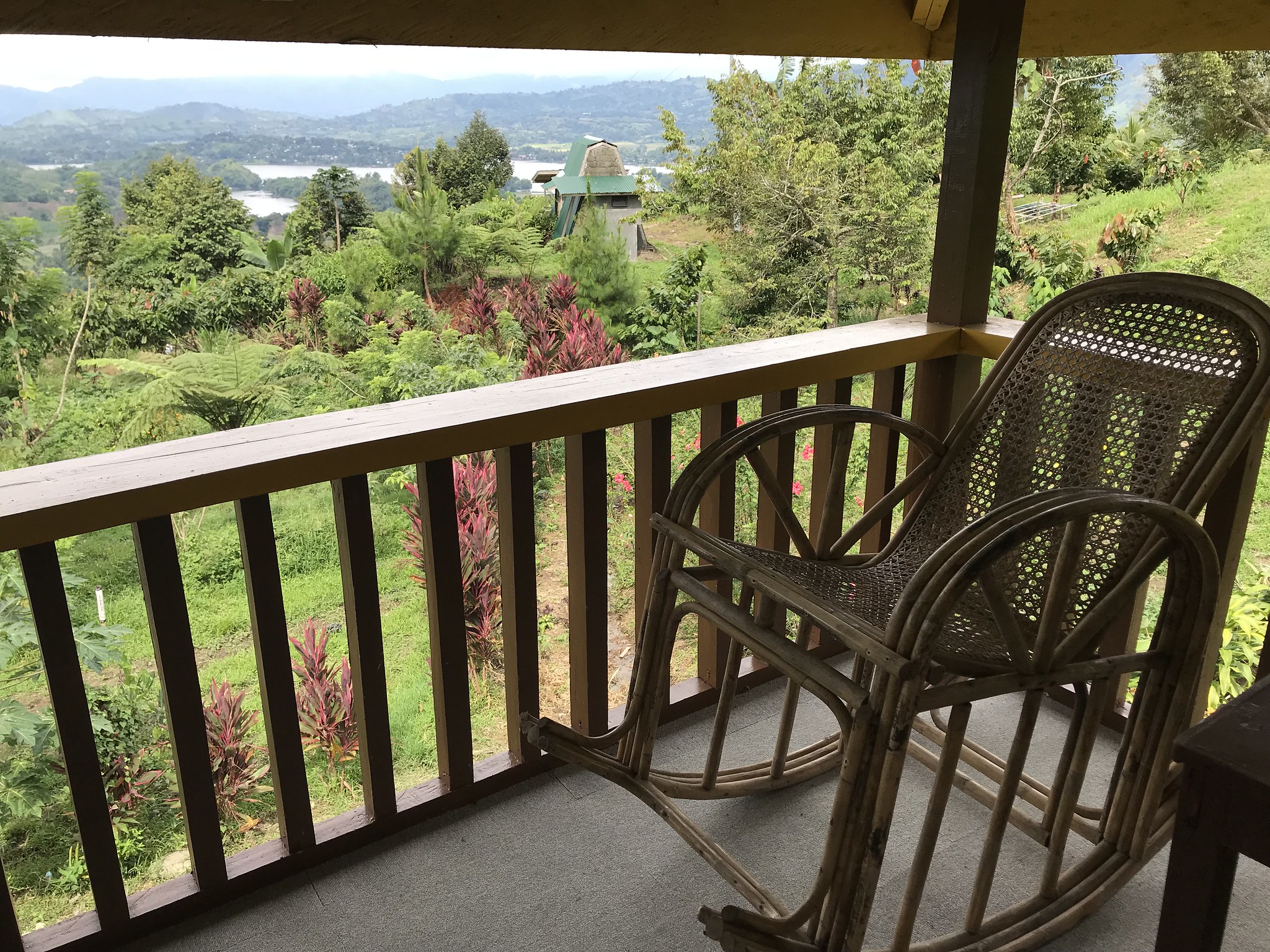
We only had half a day left to explore this beautiful 4 hectare highland farm. "Sebul" of Sebul Farm means "everything is here". =)

It is owned by a retired businessman and flight attendant!

They only started this farm 4 years ago with the help of their partner, lake warden and cacao doctor Mr. Roy Muyco. They had to think about the sustainable layouting first because this place used to have landslides. According to Mr. Muyco, they wanted to be a part of the solution to climate change as early as 2015. Some of their initial experiences to turn this into what it is now involved eradication of alien species of plants, replanting of indigenous trees and bamboo and maintaining the watershed. Next, they were able to identify cacao as suitable to plant here and he was sent to train as a cacao doctor. They were accredited as an ATI Learning Site so the farmers nearby can go in and out here to learn, consult with them and have one-on-one sessions on farming.
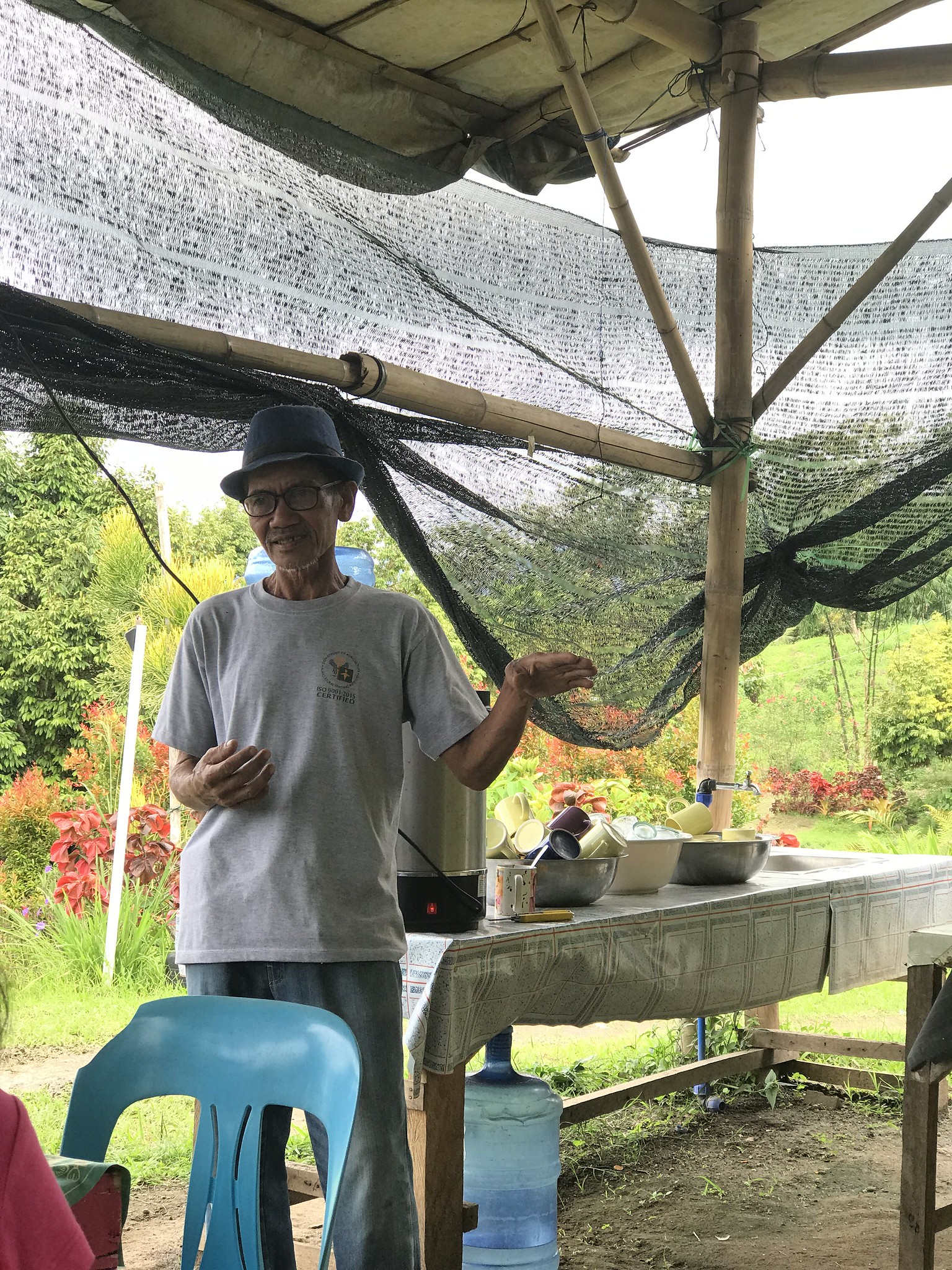
They turn their cacao to tablea and one shot is actually very potent for me already since I am sadly allergic to cacao (but I can handle it). It just means that this one is probably very pure and not diluted so much so you get your money's worth.
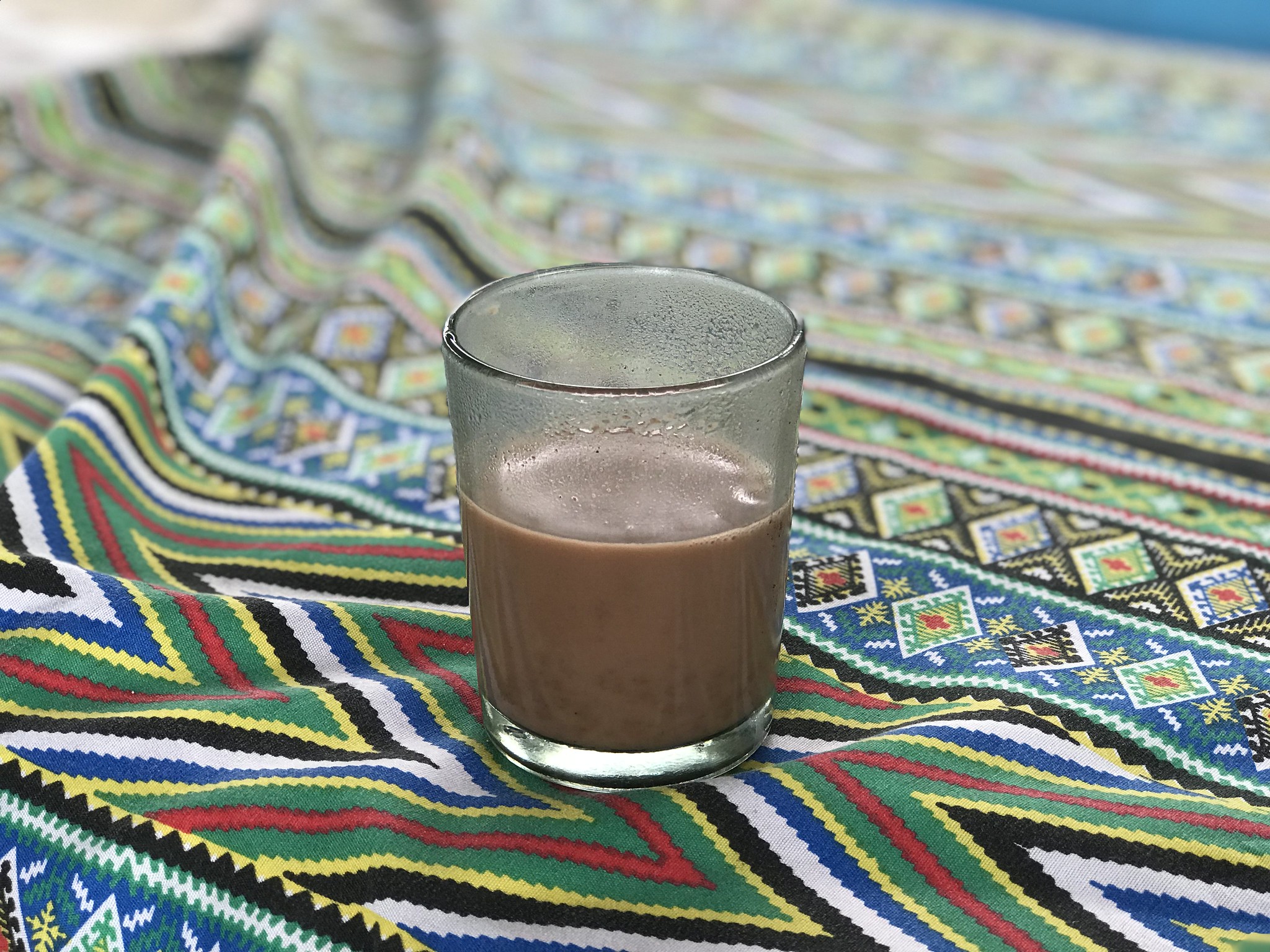
ATI has provided their community cooperative with a cocoa processing facility and it is situated in Sebul Farm. The cocoa farmers here can bring their produce here, roast them and turn them into processed chocolate or tablea, which can fetch a higher selling price when sold in the market.

The sorted fermented cocoa beans are roasted here.
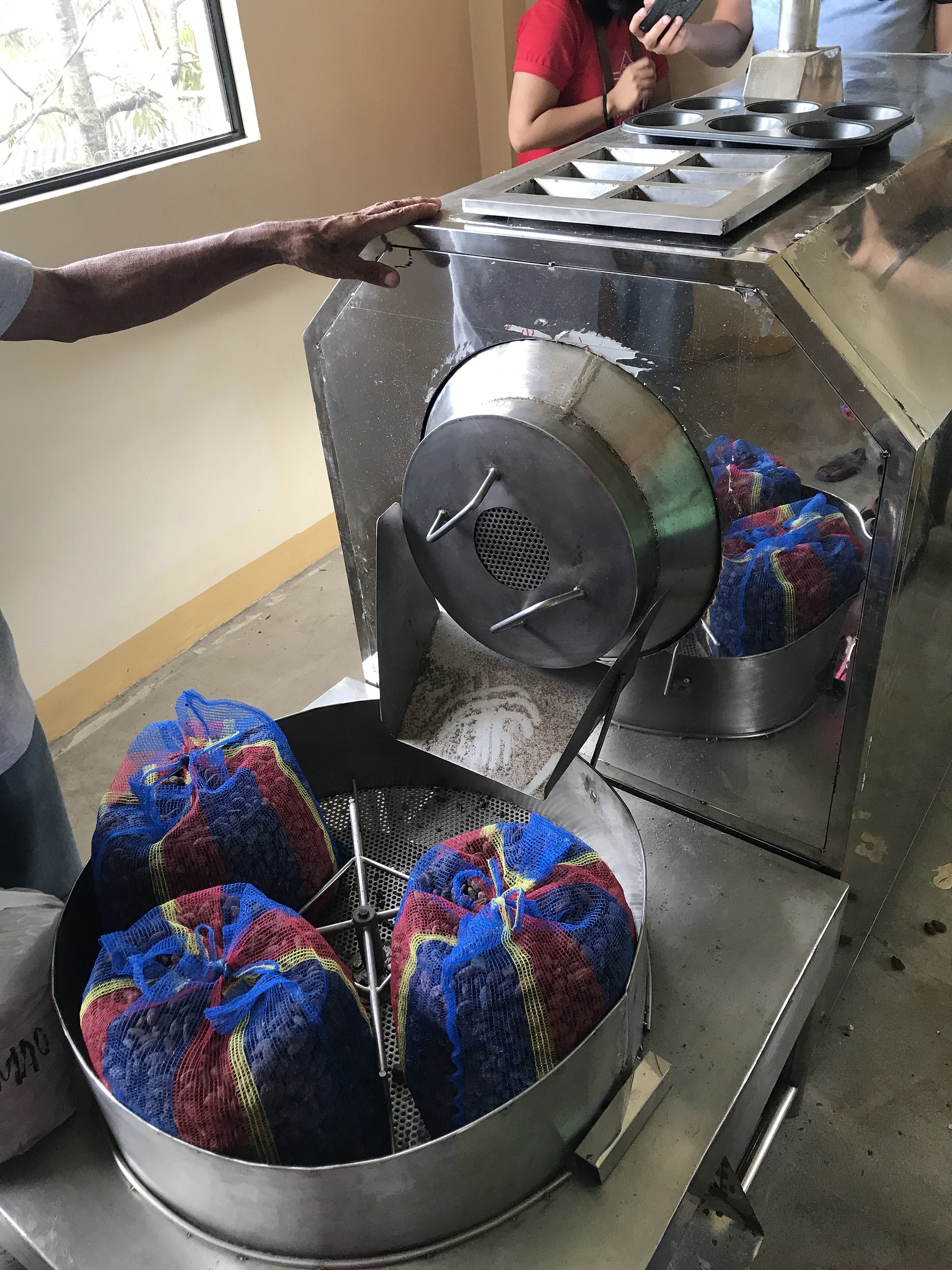
Interestingly, there are different cocoa beans for chocolate making (dark) and tablea (white).

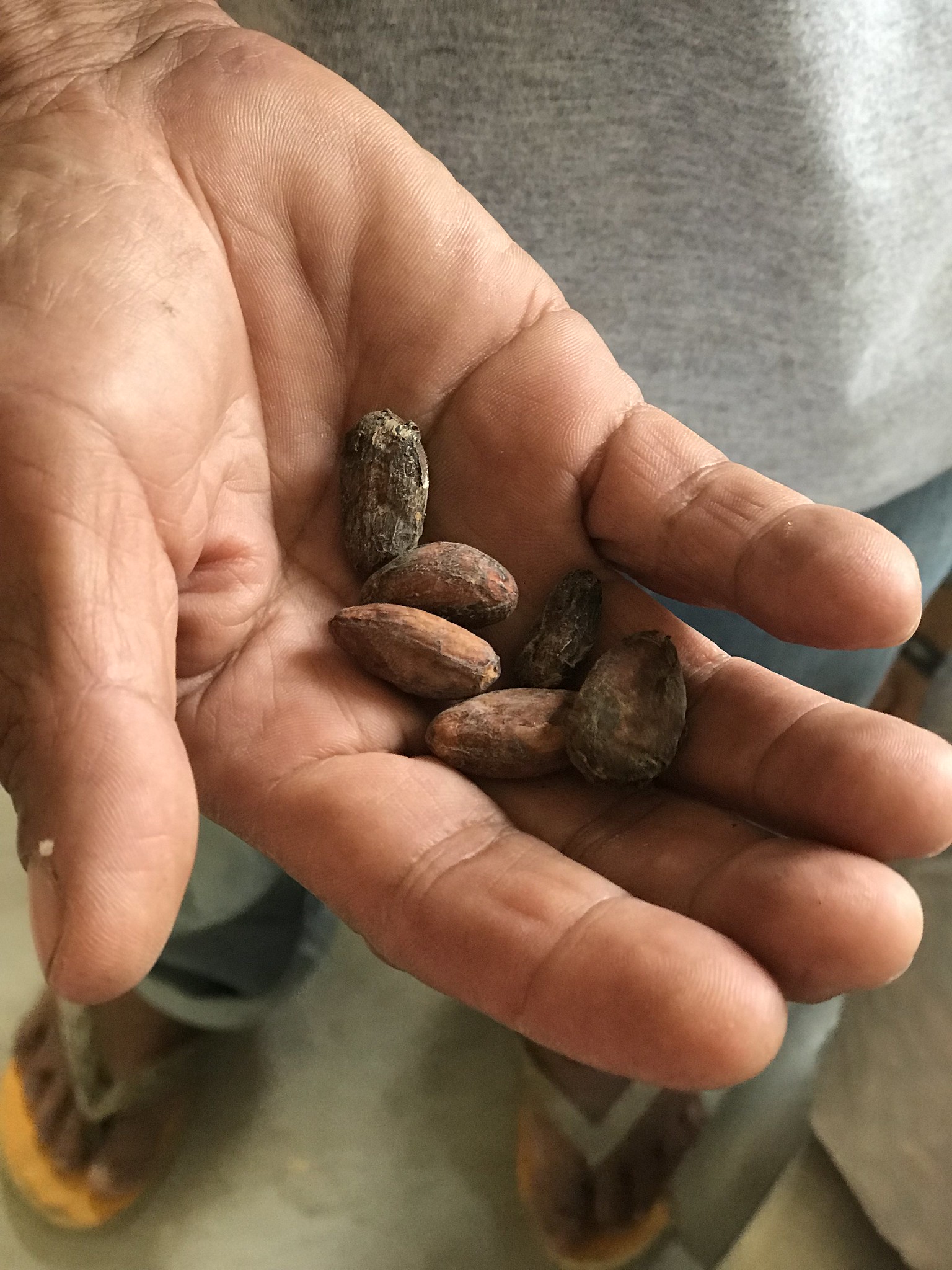
The roasted beans will be cracked, peeled and turned into cocoa nibs here. For every 15 kilos, imagine 1 kilo of cocoa shells (but it depends on variety)! The nibs are further broken down and turned into grounds with another machine.
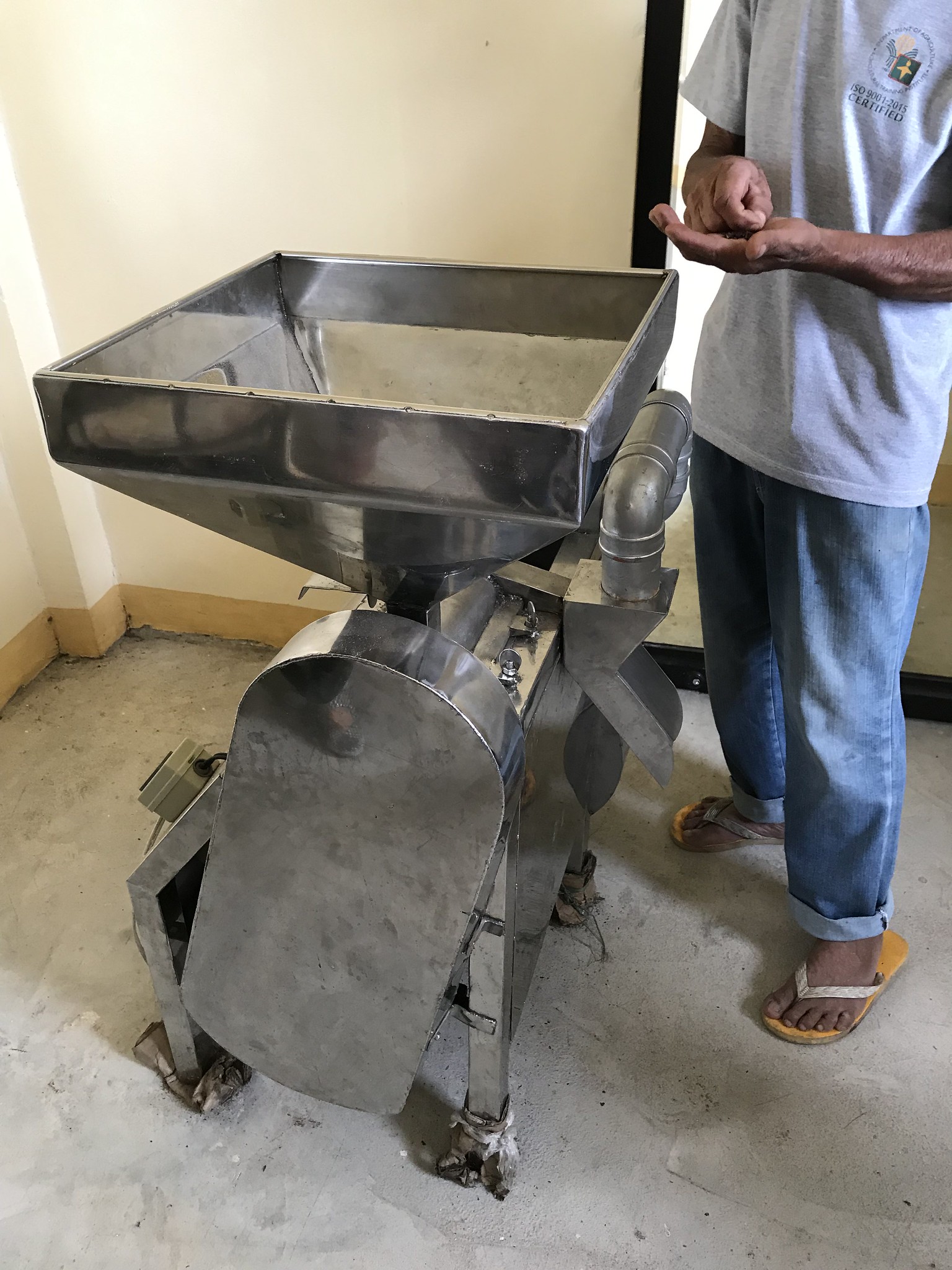
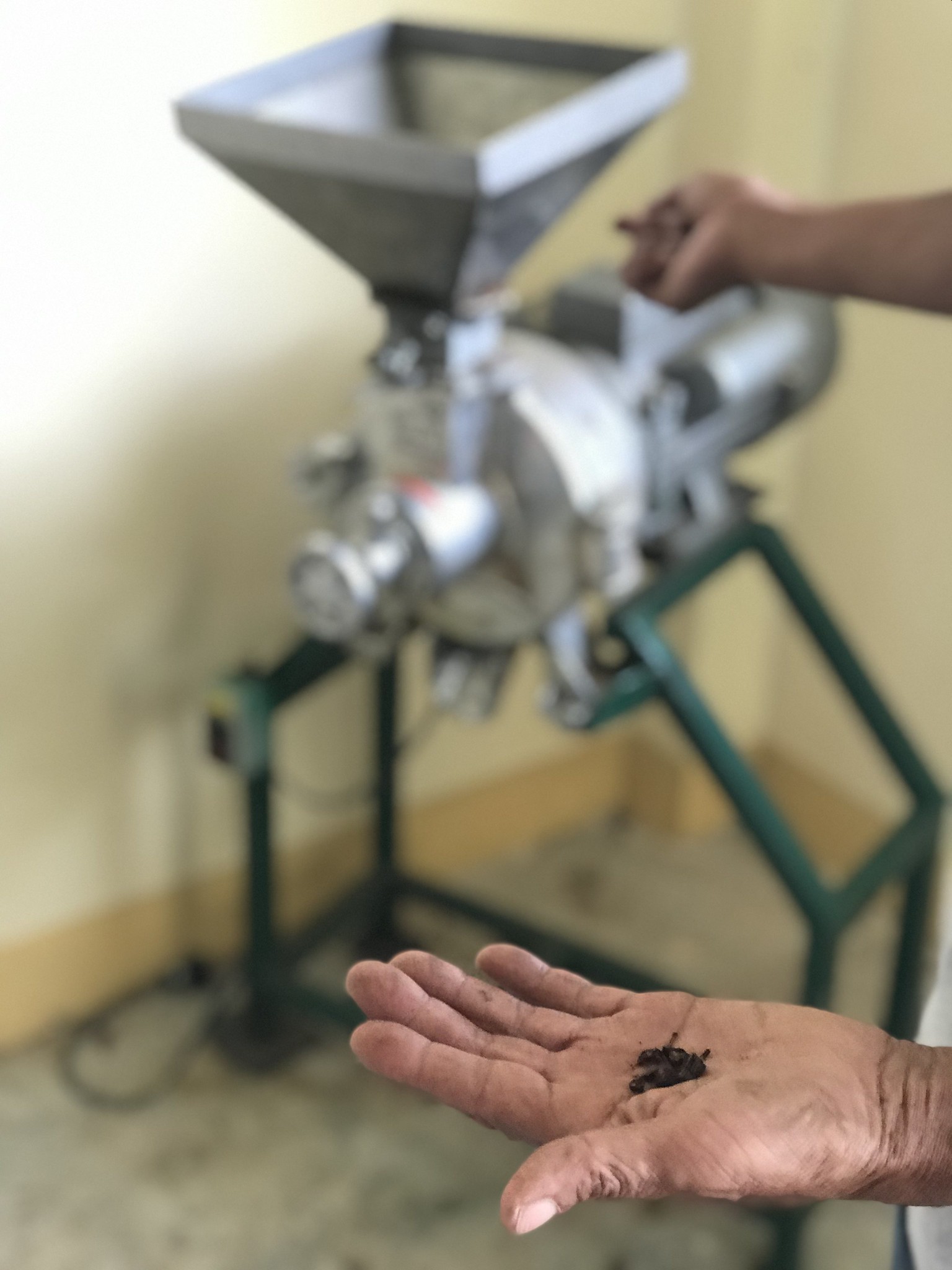
Next is tempering chocolate and mixing the cocoa with other ingredients like sugar. Once it is done, it goes through a shaker to remove the bubbles and they are finally moulded into bars or other shapes. It's not that easy to make chocolate that smooth and silky plus turned into different flavors, huh?


Mr. Muyco said these are reject beans that may have ochratoxin - something about being stuck together. Check out this link if you want to read more about the recommended international standards for the prevention of ochratoxin contamination in cocoa processing.
These are the cocoa pod shells. Mr. Sy uses them to make yummy cocoa vinegar (must try and must buy!) or feed them to the worms for vermicast. To make the vinegar, Mr. Sy says he gets the liquid from fermented cocoa beans and it turns sour after one month! Could it be that simple to produce such flavorful cocoa vinegar?! Mr. Muyco said that they got their initial vermicast from the lake shore. The water hyacinths and lilies in the lake were good for the worms so they thrived there. The rest was up to the farm owners to make good use of the worms and vermicast they produced, which will lessen their input cost also in the farms.

We then proceeded to tour the other parts of the farm! This is their view every day with a chocolate smell in the air. Isn't it the best of both worlds? Hehe.

This was the first time I saw many cacao trees with huge pods in full bloom. It seems proper planning and knowing what you can plant in your soil as well as going organic is the way to go. I believe they plant the UF18 Cacao variety here.


They even have grape

and double petal blue ternate vines. They also have white ternate but I didn't see them!
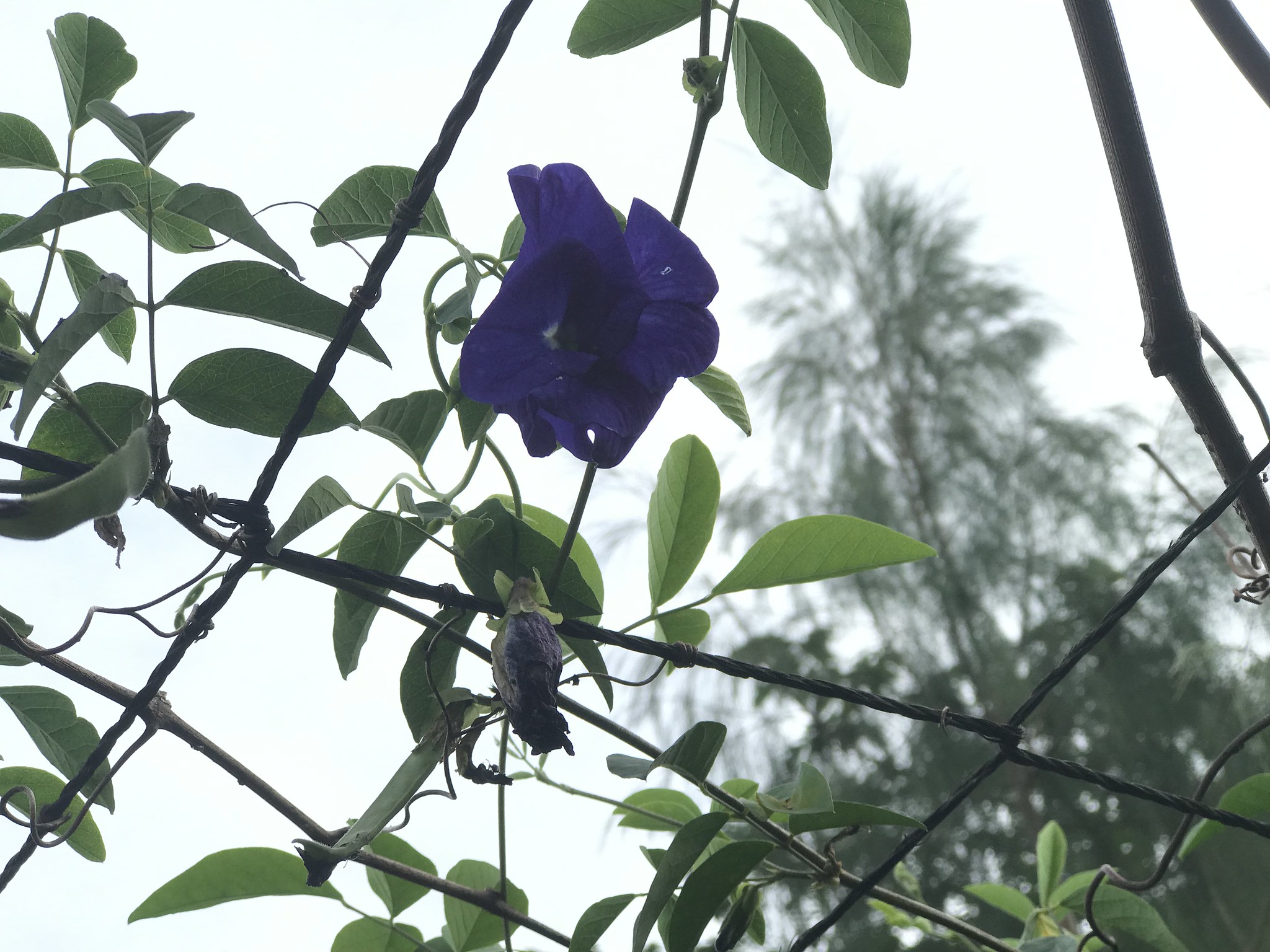
One of the benefits of going around the farm is getting seeds! You just take mature pods like these and open them to get the seeds. They say the blue ternatea (also known as butterfly pea or blue ternate) improves eyesight, anti-ageing, a memory enhancer and diuretic.

I wondered why this farm was sold to them even with that view and they told me it was from lack of water. And as such, maybe no farming was possible without this very crucial basic need. Mr. Sy was able to do his own Ramp Pump from Google and now they even have a pool and draw so much water from this mechanical pump that is available 24 hours a day. He said this is ideal for farms in the mountains and remote elevated areas. You don't need electricity, only gravity! As long as you have a degree of drop, you can extend 1 meter of water up to 5 meters.


You can also see square foot gardening in Sebul Farm. I was introduced to this at the Cervantes Farm in CDO (click on the link to see the post)! Basically, you can plant veggies, herbs or the whole Bahay Kubo song roster if you wish in just one square foot!

I saw some green onions,
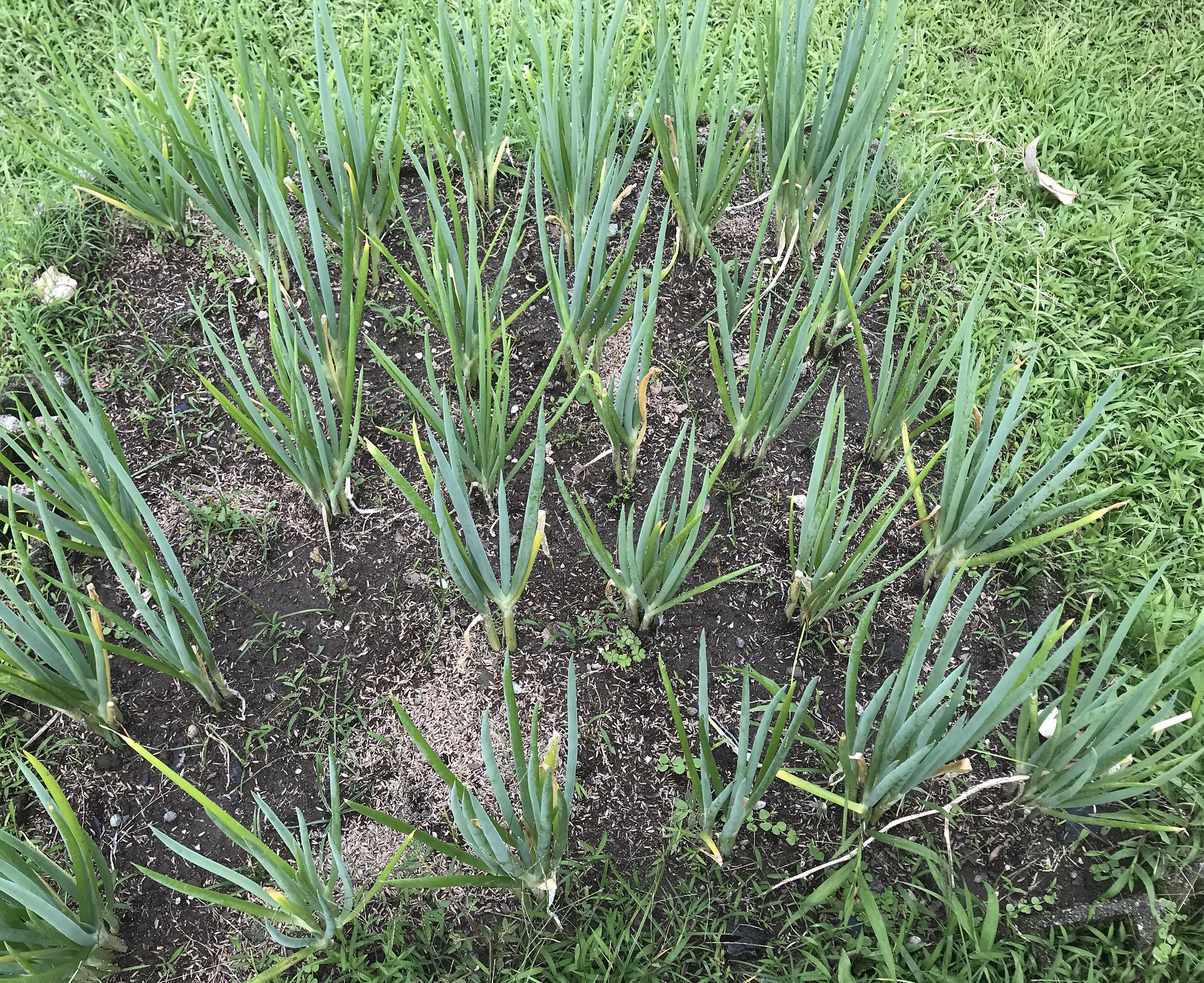
mint,

tarragon,

serpentina (check out my Garden of Life Farm visit in La Trinidad, Benguet for this one!),

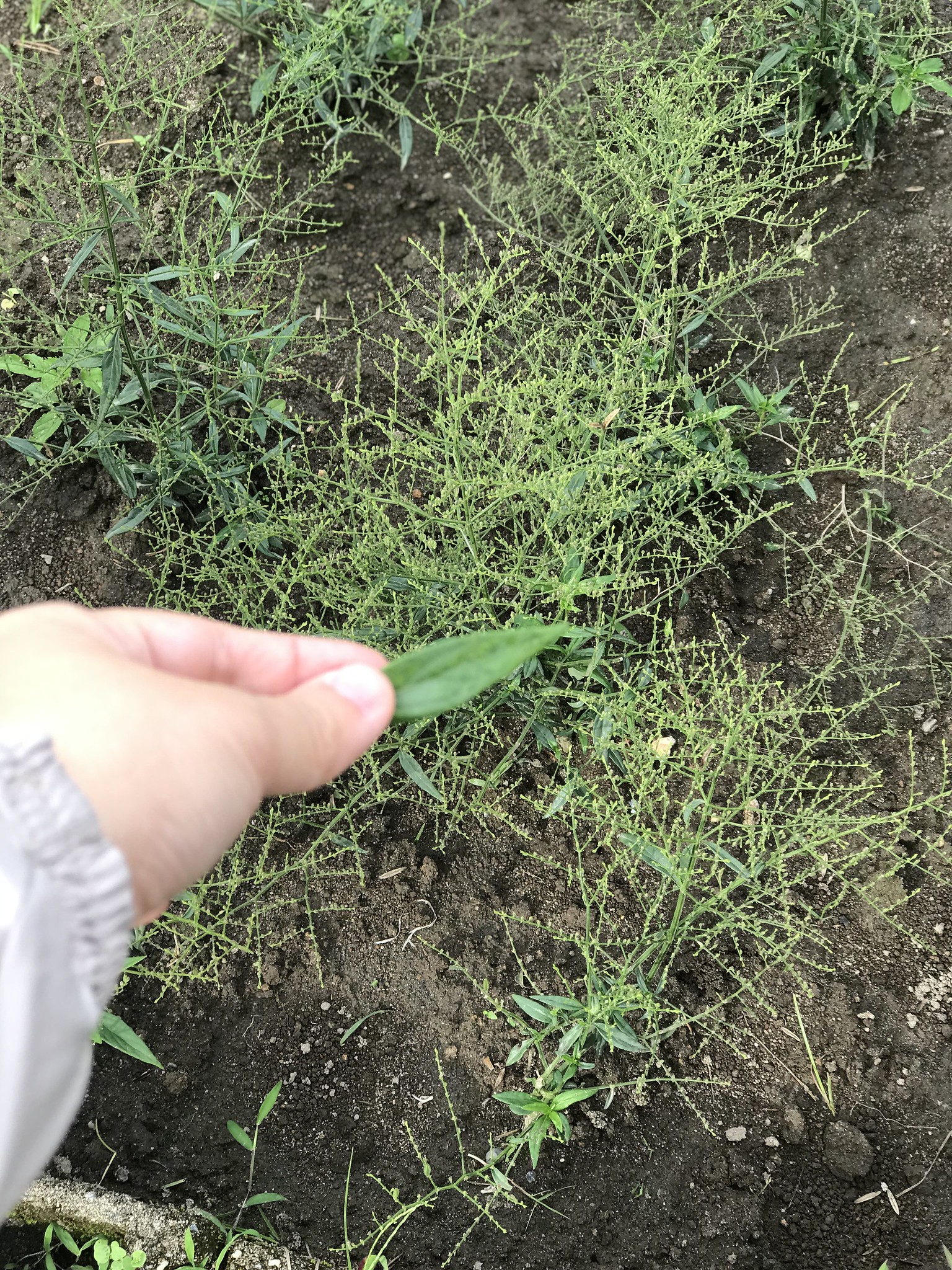
After a few hours, it was time for a snack - boiled purple corn and sweet potatoes. The Marawi Kamote was the best - purple outside that looks like long fingers and orange on the inside! Yum!
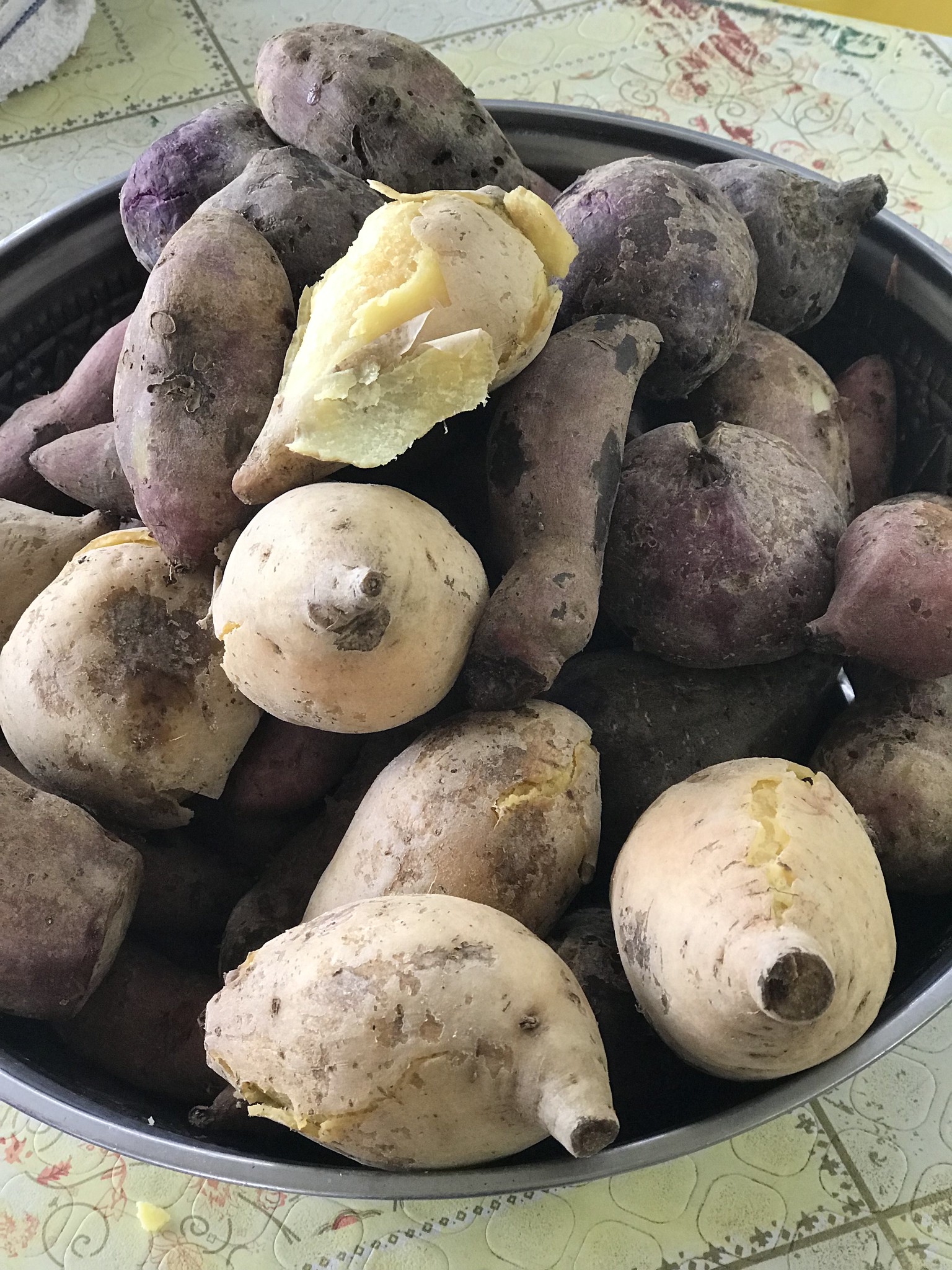

That's it for this post, folks! Stay tuned for the water tubing and falls side trip and our other meals at Sebul Farm in the next post!
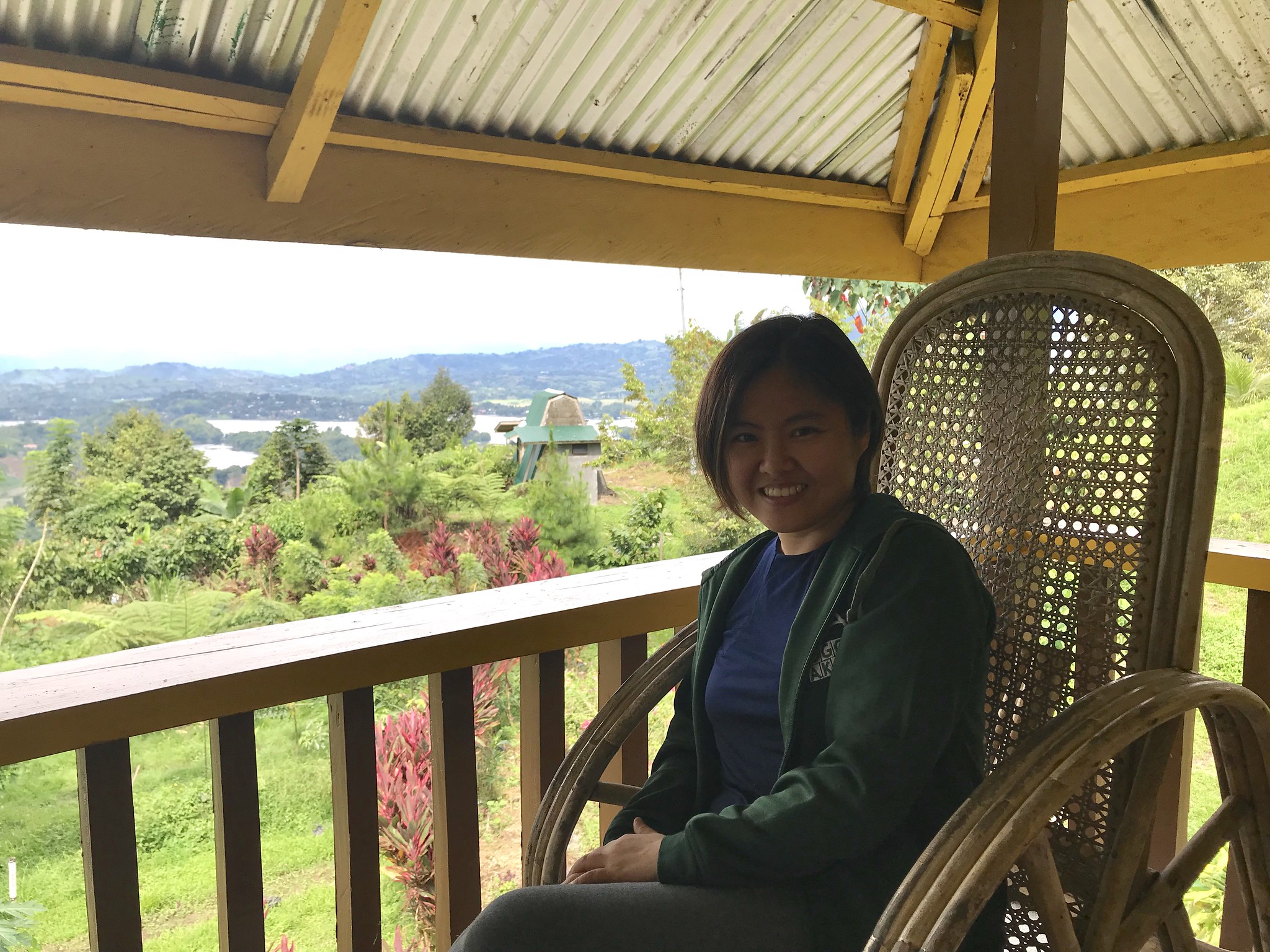
For more info on the sites we visited and if you're interested in Philippine agriculture, farm visits and organic farming, check out the ATI, E-Extension and Department of Agriculture websites.
For their Facebook, Twitter, YouTube and Instagram, you can check out @atiinteractive.
ATI also has a list of all accredited farms that are Learning Sites (LS), Extension Service Providers (ESP) and Schools for Practical Agriculture (SPA). Click here. These are the hotlines of ATI Main if you want to be in touch and ask for the farm contacts - 0920-9462474 or 929-8541 (government office hours). It is better to call their regional offices (info available at the ATI website) also as they are the ones coordinating with the farmers.
Details:
ATI Learning Site and Farm Tourism - Region 12
San Felipe, Tantangan Lake Sebu, South Cotabato
Open Daily 6am-6pm
0908-9284360
